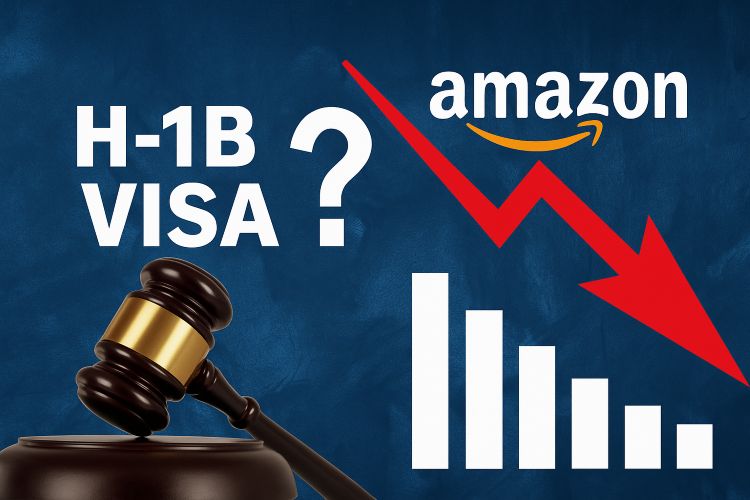AI Navigation
- articleAI Trends
- lightbulb_2AI Tips
- assistant_navigationAI Navigation
- heatHot Articles
- emergency_heat_2Hot Tips
- format_list_numberedPrompt Formatter
- psychologyTest Center(RPI)
September 21, 2025 · 24-Hour AI Briefing: H-1B Visa Uncertainty and Amazon Seller Sales Slump
In the past 24 hours, two major developments have shaken the global tech and business landscape: uncertainty surrounding U.S. H-1B visa policies is causing anxiety for both skilled workers and employers, while Amazon sellers are grappling with plummeting sales and rising competition. Together, these events highlight the challenges of globalization and shifting competitive dynamics in the tech industry.

1. H-1B Visa Policy Sparks Uncertainty
Microsoft, Google’s parent Alphabet, Amazon, and other tech giants have advised H-1B visa holders to avoid international travel, following the Trump administration’s proposal of a $100,000 application fee for the program. Although the rule currently applies only to new applications, the uncertainty has already triggered confusion, prompting companies and immigration lawyers to urge caution.
Commentary: The H-1B visa is a temporary U.S. work visa for highly skilled professionals such as engineers and developers, capped at 85,000 annually. The majority of recipients are from India (71%) and China (11.7%). This development underscores how unpredictable U.S. immigration policies can directly affect talent strategies and employee confidence in the tech sector. A $100,000 application fee would represent a massive additional cost for companies, and if extended to all applications, it would significantly raise hiring barriers—especially for startups and small to mid-sized tech firms.
2. Amazon Sellers Face Sales Slump
Since early September, Amazon sellers have reported sharp declines in sales. Traffic has dropped by around 60%, with year-over-year sales falling 30–70%. Many attribute the downturn to economic uncertainty and Amazon’s suspension of Google Shopping Ads, while rivals like Temu are seizing traffic gains.
Commentary: Small sellers are the hardest hit, struggling with excess inventory and surging storage costs. Back in July, Amazon globally suspended Google Shopping Ads, and while certain European markets resumed campaigns on August 23, the U.S. remains on pause. This has caused a dramatic drop in external traffic for third-party sellers. Meanwhile, Temu reached over 120 million monthly active users in the U.S. this September, with its aggressive low-price strategy cutting into Amazon’s “impulse buy” segment. Shein is also eating into Amazon’s market share. Amazon aims to keep traffic contained within its own ecosystem, but third-party sellers are paying the steepest price. What Amazon does next will be critical to watch.
For more AI updates, business insights, and tech trends, visit iaiseek.com.
Want to know what else happened in the AI world over the past 72 hours? Read here: